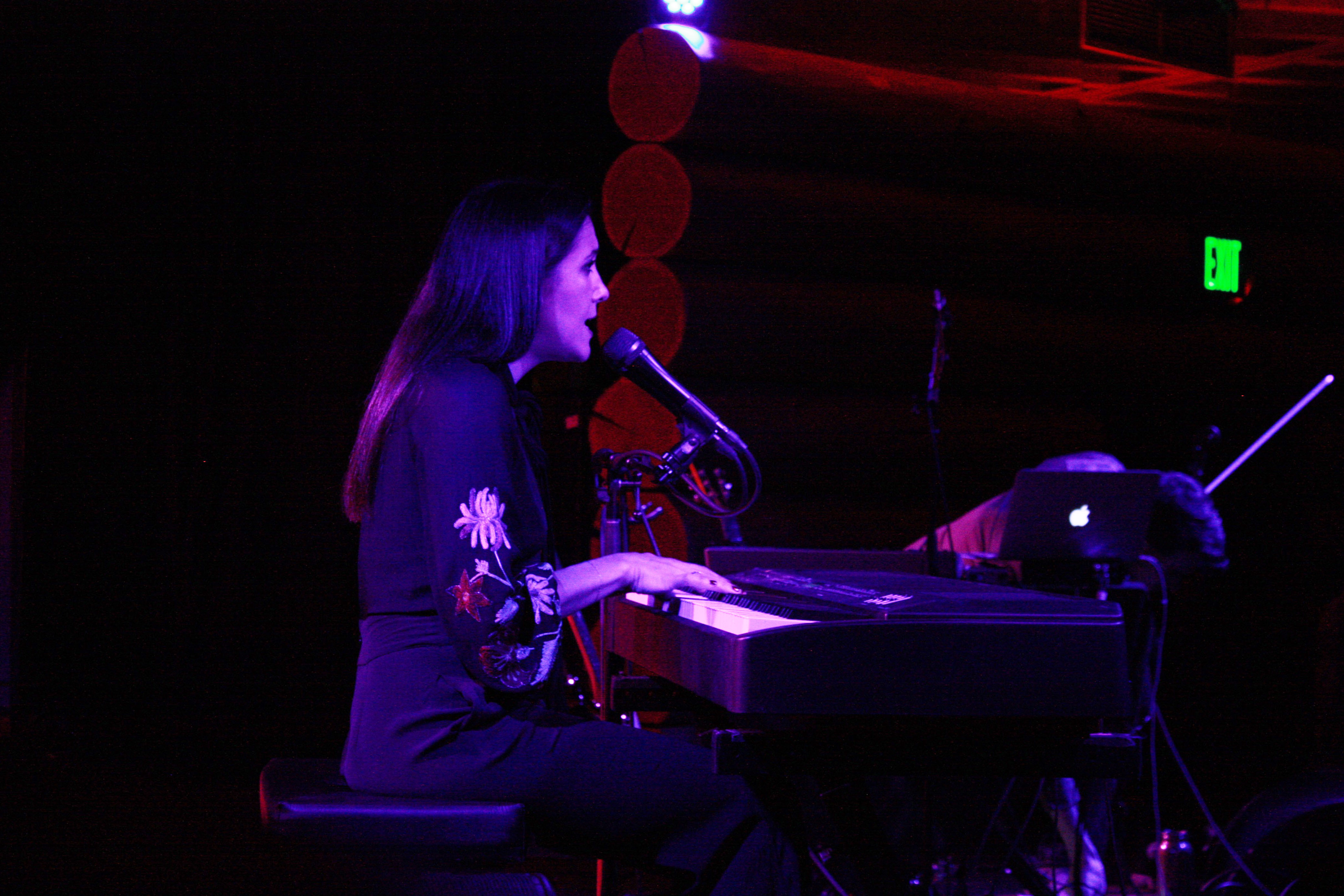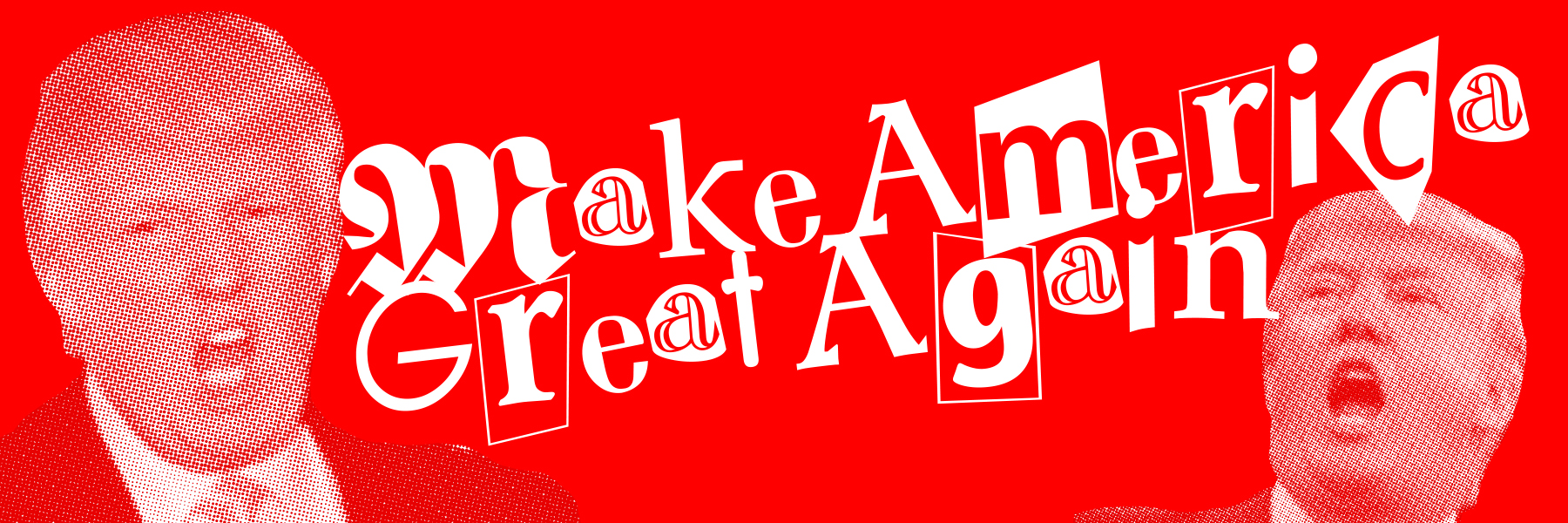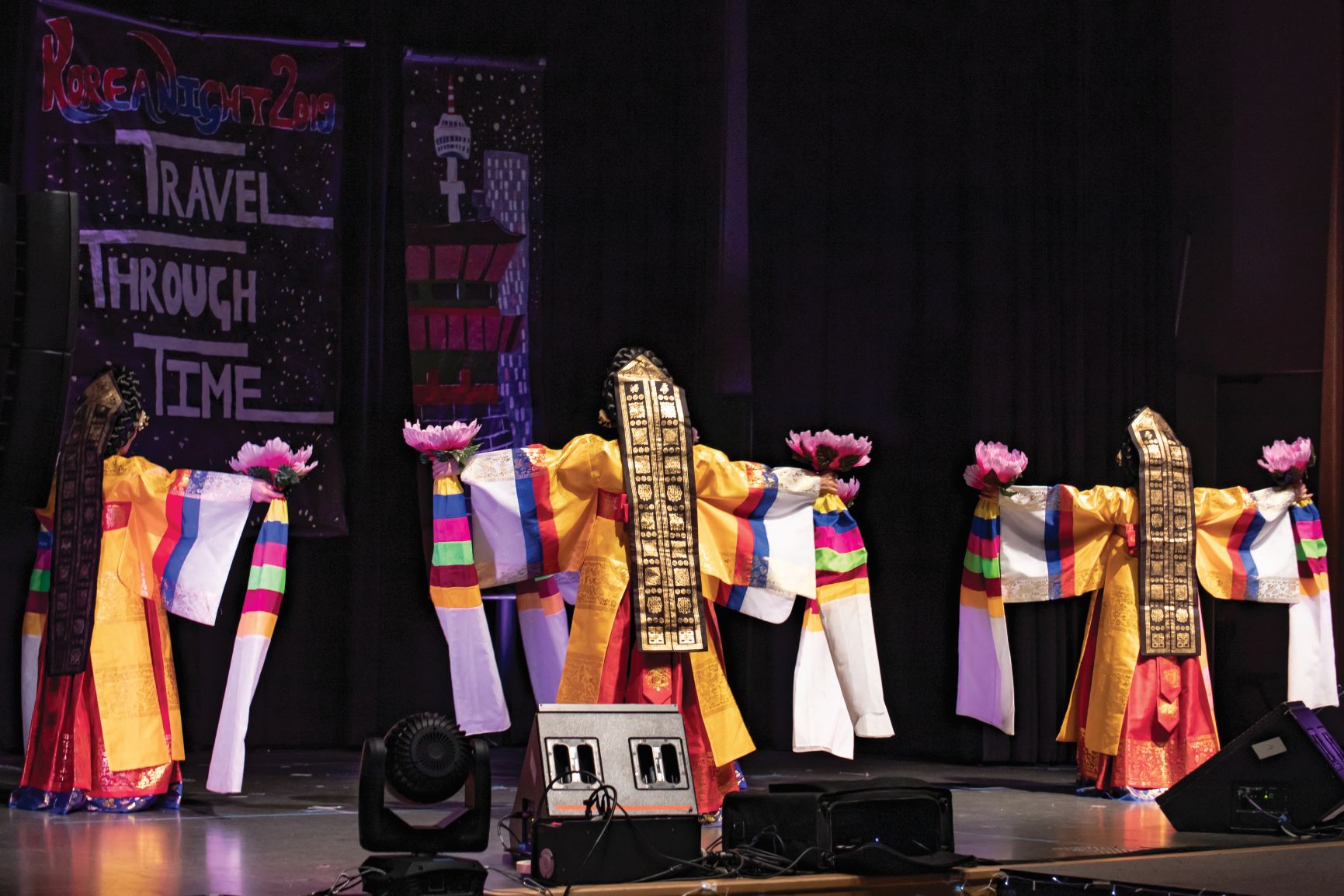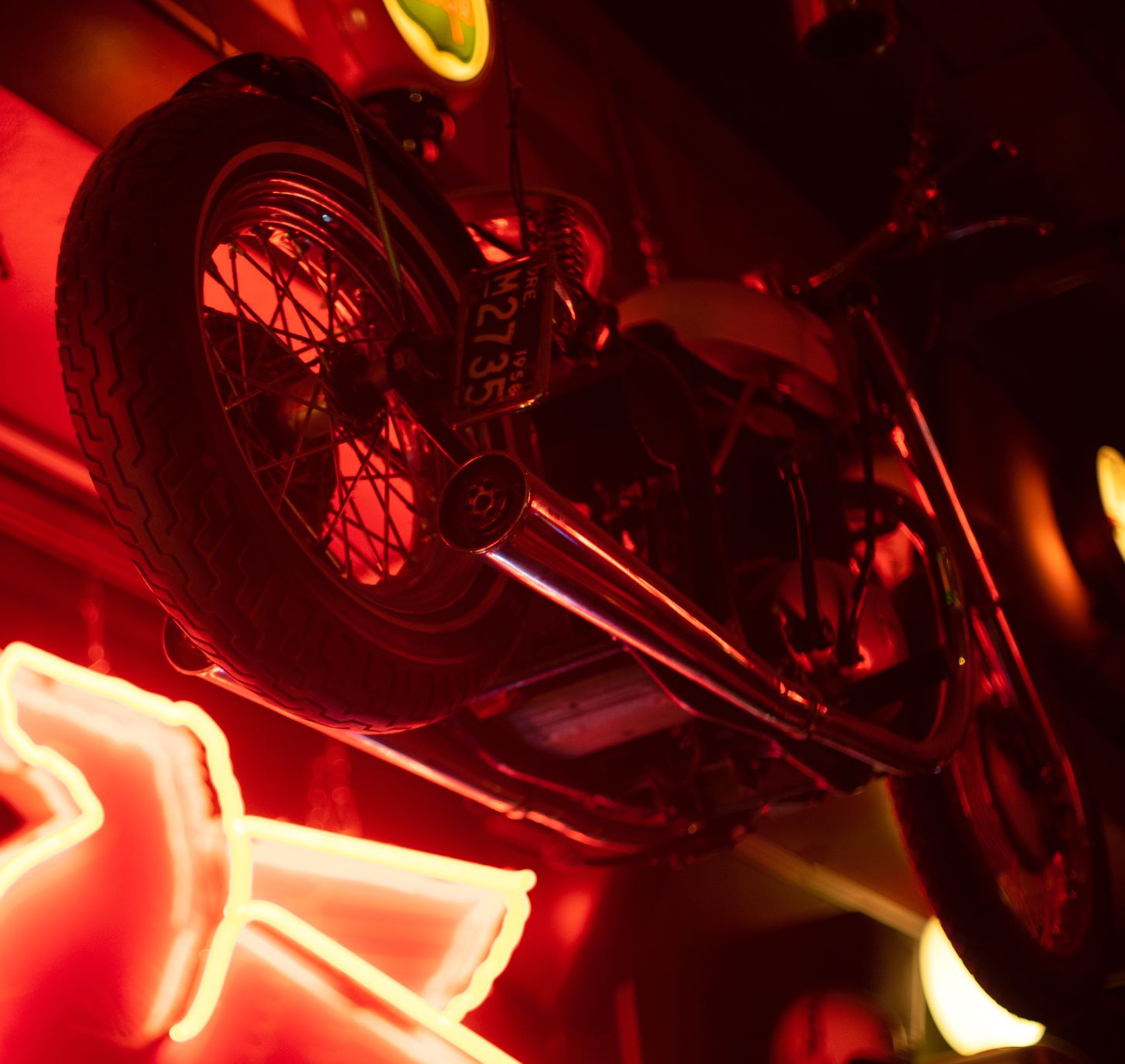“Fake news exists in families,” Vanessa Carlton said during her sold out 2017 performance at the Doug Fir Lounge, generating laughter from the audience. Carlton was explaining the painting behind her, a potentially larger-than-life reproduction of a 1963 oil painting by her grandfather Alan J. Lee, which depicts three semi-nude female forms. The color palette was impossible to determine, as the venue’s red, blue and orange-yellow lights distorted it beyond recognition, yet the colors and scale were critical in inspiring Carlton’s most recent full-length album, Liberman (2015). Carlton explained how her grandfather gave up his profession when he married and had children in the 1960s and started designing women’s button-down shirts; she also talked about how, when he immigrated to the United States, he changed his last name from Liberman to Lee so as to assimilate and “be less ethnic.”
Identity is a recurring theme across Carlton’s discography. Whereas some artists struggle with accepting the realities of aging and maturing, others struggle to be freed from youth. The lowest point of the show, if there has to be one, was Carlton’s rendition of “A Thousand Miles,” the song Carlton’s publicist said I could only ask one question about for our canceled interview. “Let’s open up some room to let the elephant out,” Carlton said, before beginning her set with accompanist Skye Steele, whom Carlton met at the end of her major label period.
Even though Carlton is obviously over the song that has found eternal life beyond her, in jewelry commercials and numerous hip-hop songs (Cam’ron’s “10,000 Miles” being Carlton’s favorite), the audience didn’t care, singing along in earnest with the lyrics that some-to-many in the room might have heard when they were tweens. The audience Saturday night seemed like it could be close to half women and half men who could be defined as old millennials or young Gen X/Y-ers, and I question how many in the audience first realized Carlton’s musical genius through learning Be Not Nobody on piano.
After that song, however, Carlton’s show flourished.
Carlton is on tour promoting her new live albums, Liberman Live and Earlier Things Live. Both albums were recorded on the last night of the Liberman Tour and were released as separate albums on different record labels within six months of each other. Carlton has stated in numerous interviews (and reiterated at the show) that her major label releases are not reflective of her contemporary artistry, and do not interact with her independent canon, which includes Liberman and 2011’s Rabbits on the Run. Many of Carlton’s major label songs dealt with youthful themes of love and yearning and were inspired by Carlton’s childhood adolescence. Rabbits on the Run, by contrast, is a sonic/lyrical soundscape inspired by Stephen Hawking and Watership Down.
The first half of the night heard Carlton and Steele playing an Earlier Things-inspired set: “White Houses” and the Stevie Nicks cover “Carousel” flowed into “San Francisco,” a song about red flags in relationships and the psychological concept of magical thinking, and “Who’s to Say,” a song dedicated to her queer fans (Carlton came out as bisexual in 2010). Carlton mentioned her theory that queer people feel pain collectively as a hive mind, which could illustrate how traumas like transphobia, day-to-day homophobia and the Pulse Massacre are crippling.
The second half of Carlton’s show came from the contemporary canon but was played in a style distinctive from Liberman Live. “Take It Easy,” “Operator,” “Nothing Where Something Used To Be,” and “Blue Pool” took on an indie-dance feel with the inclusion of loop pedals, allowing Carlton and Steele to both become a full band and choir, and achieved nuanced soundscapes that reflect Carlton’s recent career as a film score composer. As my mind wandered around the room, I appreciated the Doug Fir Lounge’s use of mirrors to amplify the perception of space without making the space appear jam-packed. I noticed at least two people crying behind me, including a dude-bro looking man. If there had been space in the room, I would have twirled my Stevie Nicks fantasy.
Between songs, Carlton opened up about losing her mind on the internet and being afraid to appear in public until finding inspiration in her friend, Julian Dorio of Eagles of Death Metal, who has continued to appear in public since the 2015 attack on Paris’ Le Bataclan. Carlton talked about live music as a safe space akin to church as sanctuary and encouraged attendees to stay after the show to write a postcard to politicians ranging from Mayor Ted Wheeler to President Donald Trump.
Carlton said the show would be the last for a long while of this intimate scale—she promised to return to Portland in a larger venue with a full band—and for this reason, amid this hyper-anxious global moment, I chose to let my mind go and embrace the lush, dreamy elements of the music. It was like a coffee shop on acid, like if you ditched Lana del Rey while she was #HighByTheBeach and found a soft lagoon, and if you could stop imagining what it would look like if fifty people in the Doug Fir Lounge dropped dead like they did in Florida at Pulse not even a year ago. Reprieve from anxiety in public spaces is rare. It was relaxing to lose myself on the Doug Fir Lounge floor in the soft sonic current. The crying around me became part of the soundscape; being jealous of a good cry, I welcomed it.
Carlton ended the night by playing a new song, “Love is an Art,” and an encore cover of Janis Joplin’s “Mercedes Benz” with vocalist Tristen. After the encore, I stayed to write a postcard to Mayor Wheeler (hi Ted!) with approximately a dozen others. I did not stay long enough to find out how many people chose to write post cards, but the line for post cards and the line for merch seemed to be similar lengths.







Andrew Jankowski is one of the best writers in Portland and maybe even the Pacific Northwest.